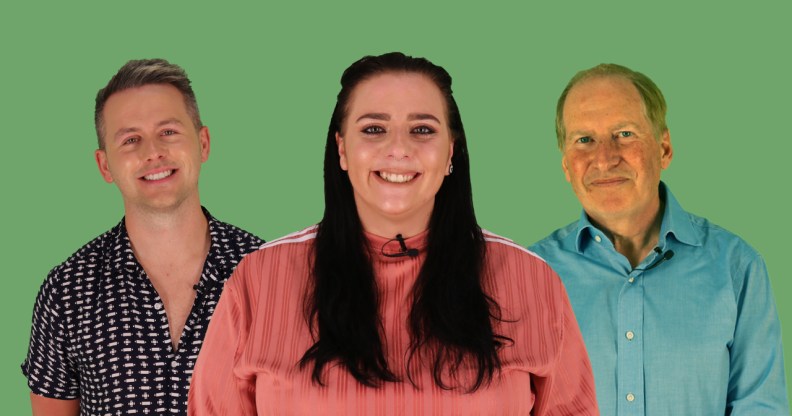Coming out at work: Why Pride matters

Jack, Amy and Nigel share what coming at work was like for them
Coming out at work is daunting but can be a positive experience. We spoke to three employees of different generations at Lloyds Banking Group to find out their coming out stories.
Pride began as a protest in June 1969, sparked by activists Stormé Delaverie, Marsha P. Johnson and Sylvia Rivera at the Stonewall Inn in New York City.
Over the past 50 years, Pride has spread across the globe to become a celebration as well as a protest, growing in size each year.
Amy, a lesbian, has worked at Lloyds for 10 years. Jack, 31, is gay and is marching with his employer at Pride in London this summer. Nigel, who is now retired, came out as gay at 57 while working at Lloyds Banking Group.
What does Pride mean to me?
“Well, Pride for me was a big step, to be honest,” says Nigel, who came out later in life, finding support from Lloyds’ Rainbow Network.
“I sort of finally admitted my sexuality to myself about four years ago.
“I have met a lot of people in my generation, since I have come out, who are gay, that have been married, having children, because that was the expected norm then.”
Jack, who is in his thirties and identifies as gay, agrees Pride has changed a lot over the years.
He first started attending Pride marches at just 17 and has noticed how much it has grown.
“The way it’s changed over the years is it’s a lot more inclusive now,” he says.
“It’s great because it’s the one time of year everyone can come together and celebrate being yourself.”
For Amy, Pride is an emotional event as it’s a time when, as a LGBT+ person, she feels “like the majority, rather than the minority.”
“Pride, to me, means not censoring yourself and being yourself.”
Coming out at work
For Nigel, 62, coming out as gay was “very nerve-wracking” as he had spent so much of his life in the closet.
However, the stress was eased by having a supportive work environment.
“I did tell my immediate team over lunch one day and they were supportive,” he explains.
“I came out to some more people and also I started getting involved with Rainbow, the network we have.”
Although now retired, Nigel says having the opportunity to come out at work in a positive way was “an important step.”
Inclusivity in a workplace is “absolutely paramount,” he adds.
Amy is a lesbian and says knowing her employer, Lloyds Banking Group, are pro-LGBT+ meant she could come out sooner.
“I don’t know how soon if I’d come out—or if I’d even done it at all—if I hadn’t had an inclusive workplace,” she explains.
“To know you can go to work and you’ve got that support from the business, it does mean you can be your true, genuine self.”
She has worked at the company for 10 years in part because of the way she has been so accepted.
Jack adds that having a LGBT+ inclusive workplace means that employees can share details about their partners and family life, too.
“It’s nice to be able to talk about stuff at home, what’s going on in your personal life, who you’re dating,” adds Jack, who says being open has helped him build stronger working relationships.
“In every team I’ve ever been in at Lloyds, there’s always been a really open dialogue and I’ve always been able to be myself.”

